Convenience is pushing the cheese category ahead of the total market, with sliced and grated spearheading the growth
Cheese features in more than 5.5 billion meal occasions in the UK every year, according to Dairy Crest's Dairy Convenience Review 2008, so it's no surprise cheese and cheese snacks are a burgeoning category for retailers.
The total cheese market is growing at a rate of 6.2% in value, with the convenience sector growing faster still - at 6.6%, according to TNS data from February 2008.
As across the food and drink sector, the consumer trends of healthier eating, premium products and convenience lines continue to dictate growth opportunities in the cheese category, but it's sliced and grated that are showing the strongest growth within the convenience sector, up 18% year on year (TNS).
Richard Tolley, marketing director at Dairy Crest, which supplies the Cathedral City brand, says: "Convenience remains a strong trend within the category, confirming consumer demand for easy-to-use products. The sliced and grated cheese sector has seen phenomenal growth in the past five years and is a great example in the cheese category of a product format that is really in tune with its consumers."
Dairy Crest has capitalised with Cathedral City mature sliced and grated variants, which are enjoying growth of 20.3% year on year (TNS). It has also recently launched Cathedral City Lighter Grated, which taps into another trend of healthy eating as well.
Wyke Farms, meanwhile, has invested in a new production line to launch grated and sliced Cheddar variants, but managing director Richard Clothier says that while convenient formats such as these are experiencing excellent growth, there's still some stigma attached to sliced Cheddar. "Consumers often see processed burger cheese slices, not Cheddar, in slices, and this is something we have to address," he says.
Wyke Farms mild and mature Cheddar sliced and grated packs are available now in independents, and will be available in extra mature as well and across all channels from September.
Health has firmly established itself as a driving force across all categories, and cheese is no exception. Manufacturers have worked hard to develop reduced-fat versions that don't compromise on taste. Wyke Farms' has widened the distribution of its Leskol brand, which is now available to the independent sector through Musgrave, some Spar wholesalers and Makro.
Cheese has not escaped the move towards snacking products either, with products such as Cathedral City's To Go brand and Brunchettas swiftly becoming regulars on the chilled fixture in c-stores. According to Nielsen data, cheese snacks are growing by 8.7% year on year.
Wyke Farms is entering this market for the first time with the launch of Pub Tubs - a cubed cheese snacking product with sticks for eating on the move. Pub Tubs will be launching to convenience stores during the next couple of months.
Kraft Foods continues to expand its snacking range, too. Last month it launched a Nachos variant under the Dairylea Dunkers brand. The product comprises tortilla chips with Dairylea cheese for dipping and is pricemarked at 65p. It will benefit from a £2m TV and outdoor advertising campaign that kicks off this month.
Despite all the brand extensions and moves into new formats, everyday block cheeses are still in growth and being driven by stronger flavours such as mature and extra mature, according to Wyke Farms' Richard Clothier. He says: "People are trading up in the cheese category."
With consideration about where food comes from and how far it has travelled continuing to be elevated in the consumers' minds, some cheese manufacturers are focusing on messages of provenance when marketing their ranges. Wyke Farms plays heavily on the family cheesemaker heritage, and Anchor has taken up a free-range message across its entire dairy range, including cheese. New packaging designs launched earlier this year reinforces this status.
Anchor senior brand manager Lorraine Crowe says: "Like Anchor butter, Anchor Cheddar is made exclusively from milk from free range cows and is naturally slow-matured to give it an authentic full, smooth flavour. This is a really positive time to be pushing the free-range message."
Regional British cheeses such as Lancashire, Cheshire and Red Leicester have also seen a surge in sales, according to latest research from Mintel, published in September 2007. Sales have increased as much as 16% between 2004 and 2006, to reach £220m, with growth here outpacing soft and continental cheese.
Mintel senior consumer analyst David Bird says: "With growing interest in environmental and ethical concerns, we are becoming increasingly interested in the origins of our food. As a result, we are seeing a growing trend towards 'buying British', which has provided a huge boost for sales of British regional cheese."
He adds: "Many varieties of regional British cheese have extended their ranges by adding fruits, liqueurs and even curry. This has really caught the imagination of cheese customers and has led to the rise in sales of locally produced cheese."
Meanwhile, although volume sales of continental cheese have continued to rise, value sales have lost their way, as market value fell 7% between 2004 and 2006 to £340m. "Continental cheese such as brie used to be seen as a luxury for special occasions, but today many continental varieties are an everyday staple. This has inevitably brought prices down and as a result market value has declined, despite rising volume sales," explains Bird.
Although British regional cheese has seen the greatest growth, cheddars from the UK and abroad accounted for more than half (52%) of all cheese sales in the UK last year, having grown 7% between 2004 and 2006 to reach £985m. "Cheddars are still a British staple," says Bird. "The market has done well to see growth despite heavy discounting in the multiples."
Broccoli
Also known as Calabrese, broccoli has dark green heads of tight buds above a thick, pale green stalk. A purple variety is also available.
Broccoli grown in the UK can be sourced between May and November, from Spain from November to June, Holland in May to December, and Italy between November and May.
The vegetable should be merchandised in the tray where the heads will be packed in such a way as to be supported. Never tip broccoli heads onto a fixture. Individually wrapped heads should be placed on shelves with the stalk end downwards. Stock should be checked several times during the day as broccoli can dehydrate and wilt quickly.
The heads of broccoli should be closely packed without any gaps. It should feel firm to the touch but should not be squeezed or dropped because the head is very fragile. Broccoli should be kept chilled and inspected regularly for signs of wilting, yellowing or damage to the head.
Supplier: Pork Farms
Background: In the early 1940s, with a City and Guilds Baker's Certificate in hand, Nottingham lad Ken Parr set up a pie shop with £9,000 of borrowed money. His reputation for crusty pies became renowned and he soon had eyes on a local shop owner's pie shop - Pork Farms.
Ken Parr transformed Pork Farms into one of the most popular shops around and set about buying more outlets. In 1965 tycoon Garfield Weston bought Pork Farms, and Ken Parr became chairman.
At the same time rival Nottingham pie company TN Parr (owned by the Samworth family and formerly owned by Ken's uncle) was also expanding and in 1969 TN Parr bought Pork Farms and the two Nottingham 'pie' families were fused.
From that day, they traded under the name Pork Farms and developed into a 2,500-strong team spread across three locations in the UK: Market Drayton; Shaftesbury; and its pork pie Centre of Excellence in Nottingham.
The ranges includes several pork pie varieties, pastry slices and pastry rolls, as well as scotch eggs and cocktail sausages.
Recent launches: Kingsize Big Hit sausage roll, and Munchbox, which comprises five sausage rolls in a handy fridge pack (the latter only currently available in multiples)
Distribution: National distribution through wholesale and multiples.
Cheese features in more than 5.5 billion meal occasions in the UK every year, according to Dairy Crest's Dairy Convenience Review 2008, so it's no surprise cheese and cheese snacks are a burgeoning category for retailers.
The total cheese market is growing at a rate of 6.2% in value, with the convenience sector growing faster still - at 6.6%, according to TNS data from February 2008.
As across the food and drink sector, the consumer trends of healthier eating, premium products and convenience lines continue to dictate growth opportunities in the cheese category, but it's sliced and grated that are showing the strongest growth within the convenience sector, up 18% year on year (TNS).
Richard Tolley, marketing director at Dairy Crest, which supplies the Cathedral City brand, says: "Convenience remains a strong trend within the category, confirming consumer demand for easy-to-use products. The sliced and grated cheese sector has seen phenomenal growth in the past five years and is a great example in the cheese category of a product format that is really in tune with its consumers."
Dairy Crest has capitalised with Cathedral City mature sliced and grated variants, which are enjoying growth of 20.3% year on year (TNS). It has also recently launched Cathedral City Lighter Grated, which taps into another trend of healthy eating as well.
Wyke Farms, meanwhile, has invested in a new production line to launch grated and sliced Cheddar variants, but managing director Richard Clothier says that while convenient formats such as these are experiencing excellent growth, there's still some stigma attached to sliced Cheddar. "Consumers often see processed burger cheese slices, not Cheddar, in slices, and this is something we have to address," he says.
Wyke Farms mild and mature Cheddar sliced and grated packs are available now in independents, and will be available in extra mature as well and across all channels from September.
Health has firmly established itself as a driving force across all categories, and cheese is no exception. Manufacturers have worked hard to develop reduced-fat versions that don't compromise on taste. Wyke Farms' has widened the distribution of its Leskol brand, which is now available to the independent sector through Musgrave, some Spar wholesalers and Makro.
Cheese has not escaped the move towards snacking products either, with products such as Cathedral City's To Go brand and Brunchettas swiftly becoming regulars on the chilled fixture in c-stores. According to Nielsen data, cheese snacks are growing by 8.7% year on year.
Wyke Farms is entering this market for the first time with the launch of Pub Tubs - a cubed cheese snacking product with sticks for eating on the move. Pub Tubs will be launching to convenience stores during the next couple of months.
Kraft Foods continues to expand its snacking range, too. Last month it launched a Nachos variant under the Dairylea Dunkers brand. The product comprises tortilla chips with Dairylea cheese for dipping and is pricemarked at 65p. It will benefit from a £2m TV and outdoor advertising campaign that kicks off this month.
Despite all the brand extensions and moves into new formats, everyday block cheeses are still in growth and being driven by stronger flavours such as mature and extra mature, according to Wyke Farms' Richard Clothier. He says: "People are trading up in the cheese category."
With consideration about where food comes from and how far it has travelled continuing to be elevated in the consumers' minds, some cheese manufacturers are focusing on messages of provenance when marketing their ranges. Wyke Farms plays heavily on the family cheesemaker heritage, and Anchor has taken up a free-range message across its entire dairy range, including cheese. New packaging designs launched earlier this year reinforces this status.
Anchor senior brand manager Lorraine Crowe says: "Like Anchor butter, Anchor Cheddar is made exclusively from milk from free range cows and is naturally slow-matured to give it an authentic full, smooth flavour. This is a really positive time to be pushing the free-range message."
Regional British cheeses such as Lancashire, Cheshire and Red Leicester have also seen a surge in sales, according to latest research from Mintel, published in September 2007. Sales have increased as much as 16% between 2004 and 2006, to reach £220m, with growth here outpacing soft and continental cheese.
Mintel senior consumer analyst David Bird says: "With growing interest in environmental and ethical concerns, we are becoming increasingly interested in the origins of our food. As a result, we are seeing a growing trend towards 'buying British', which has provided a huge boost for sales of British regional cheese."
He adds: "Many varieties of regional British cheese have extended their ranges by adding fruits, liqueurs and even curry. This has really caught the imagination of cheese customers and has led to the rise in sales of locally produced cheese."
Meanwhile, although volume sales of continental cheese have continued to rise, value sales have lost their way, as market value fell 7% between 2004 and 2006 to £340m. "Continental cheese such as brie used to be seen as a luxury for special occasions, but today many continental varieties are an everyday staple. This has inevitably brought prices down and as a result market value has declined, despite rising volume sales," explains Bird.
Although British regional cheese has seen the greatest growth, cheddars from the UK and abroad accounted for more than half (52%) of all cheese sales in the UK last year, having grown 7% between 2004 and 2006 to reach £985m. "Cheddars are still a British staple," says Bird. "The market has done well to see growth despite heavy discounting in the multiples."
spotlight
Broccoli
Also known as Calabrese, broccoli has dark green heads of tight buds above a thick, pale green stalk. A purple variety is also available.
Broccoli grown in the UK can be sourced between May and November, from Spain from November to June, Holland in May to December, and Italy between November and May.
The vegetable should be merchandised in the tray where the heads will be packed in such a way as to be supported. Never tip broccoli heads onto a fixture. Individually wrapped heads should be placed on shelves with the stalk end downwards. Stock should be checked several times during the day as broccoli can dehydrate and wilt quickly.
The heads of broccoli should be closely packed without any gaps. It should feel firm to the touch but should not be squeezed or dropped because the head is very fragile. Broccoli should be kept chilled and inspected regularly for signs of wilting, yellowing or damage to the head.
meet the supplier
Supplier: Pork Farms
Background: In the early 1940s, with a City and Guilds Baker's Certificate in hand, Nottingham lad Ken Parr set up a pie shop with £9,000 of borrowed money. His reputation for crusty pies became renowned and he soon had eyes on a local shop owner's pie shop - Pork Farms.
Ken Parr transformed Pork Farms into one of the most popular shops around and set about buying more outlets. In 1965 tycoon Garfield Weston bought Pork Farms, and Ken Parr became chairman.
At the same time rival Nottingham pie company TN Parr (owned by the Samworth family and formerly owned by Ken's uncle) was also expanding and in 1969 TN Parr bought Pork Farms and the two Nottingham 'pie' families were fused.
From that day, they traded under the name Pork Farms and developed into a 2,500-strong team spread across three locations in the UK: Market Drayton; Shaftesbury; and its pork pie Centre of Excellence in Nottingham.
The ranges includes several pork pie varieties, pastry slices and pastry rolls, as well as scotch eggs and cocktail sausages.
Recent launches: Kingsize Big Hit sausage roll, and Munchbox, which comprises five sausage rolls in a handy fridge pack (the latter only currently available in multiples)
Distribution: National distribution through wholesale and multiples.








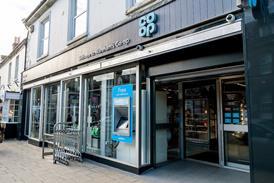










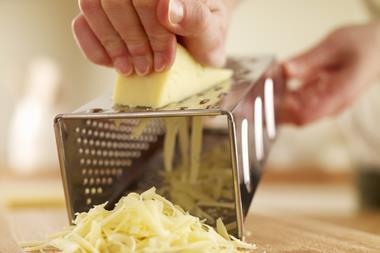
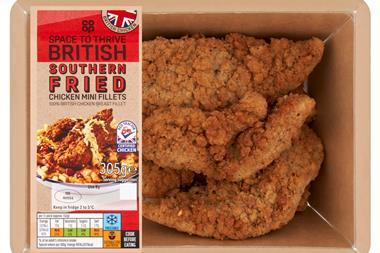


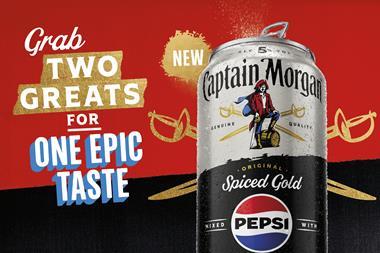
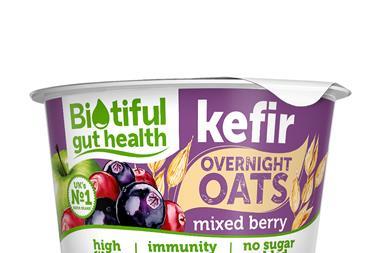

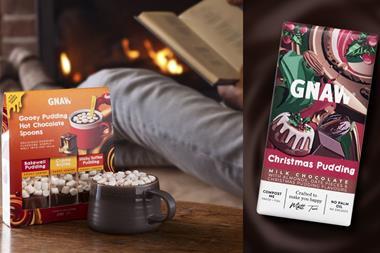
No comments yet